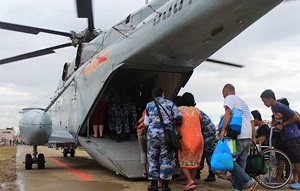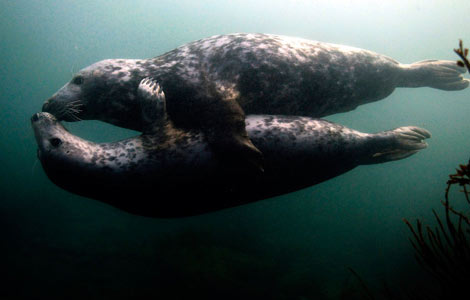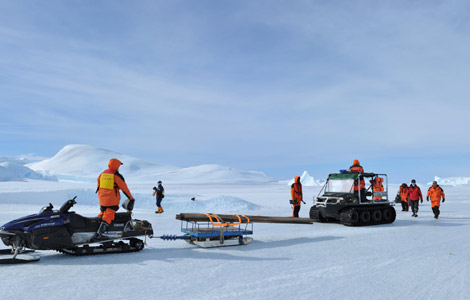Japan launches security council
Updated: 2013-12-05 01:25
By CAI HONG in Tokyo and ZHOU WA in Beijing (China Daily)
|
|||||||||||
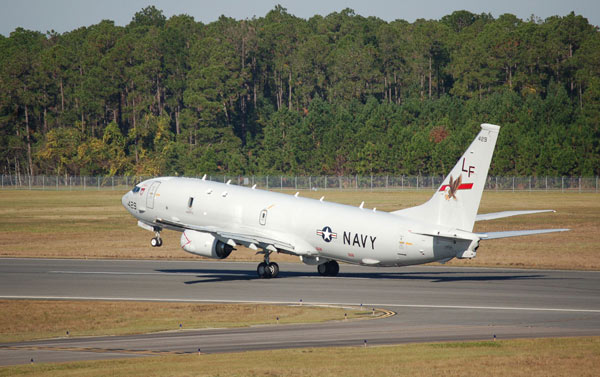 |
|
The US deploys a P-8A surveillance aircraft to Okinawa, Japan, on Sunday. Clark Pierce / AFP |
Body paves way to strengthen Tokyo's military capabilities
With an eye on China, Japan established its US-style National Security Council on Wednesday, a move that analysts said will speed up Tokyo's policy decisions relating to diplomacy and defense.
The launch marked a major step in efforts by Japanese Prime Minister Shinzo Abe to give the Cabinet greater power to strengthen the country's defense capabilities, said observers.
At a news conference on Wednesday, Chinese Foreign Ministry spokesman Hong Lei urged Tokyo to respect the security concerns of neighboring countries in East Asia, stick to the path of peaceful development and contribute to peace and stability in the region.
For historical reasons, all Asian countries pay great attention to Japan's military and security moves, Hong said.
Japan's attempts to change its postwar Constitution does not make its neighbors feel at ease, he added.
Analysts said such moves will increase tensions in East Asia and change the status quo in place since World War II ended.
"The launch of the organization is one of the main pillars of the expansion of its armed forces and will give Japan more freedom to use its forces," said Zhou Qing'an, a professor of international affairs at Tsinghua University.
Article 9 of the Japanese Constitution bans the country from maintaining a military, but the interpretation of the article has already been stretched to allow the creation of a military as large as France's.
Revising the Constitution is difficult because amendments must be approved by two-thirds of each house of parliament and a majority of voters in a referendum.
"The condition is not at the moment ripe for Japan to change its Constitution. The launch of the agency is only a means to an end for Tokyo," Zhou said.
"It also paves the way for Japan to send its military overseas," he added.
Through diplomatic means, Japan has been overstating threats to its security for a long time, said Li Qinggong, deputy secretary-general of the China Council for National Security Policy Studies.
"With the new NSC, it becomes easier for Japan to change the Constitution, because Tokyo will surely make its defense policies better fit the ‘security threats," Li said.
The NSC will focus primarily on diplomacy and defense, likely discussing a set of defense agenda items that Japan is due to approve by year's end.
"It will take leadership in crafting both guidelines and strategy," Japanese Chief Cabinet Secretary Yoshihide Suga said at a news conference.
Abe instructed his Cabinet ministers on Tuesday to take a united approach to security challenges, while Suga said the new NSC will cooperate closely with its foreign counterparts.
In January, the NSC will set up a 60-strong secretariat whose offices will have dedicated lines to its counterparts in the United States and Britain, Nihon Keizai Shimbun reported.
The newspaper said Japan also plans to ask other nations, including France, Germany, India and Australia, to lay direct hotlines as well to address threats from the Democratic People's Republic of Korea and China, as well as cyberattacks and other security concerns.
Meanwhile, as tensions mount in East Asia, the US navy deployed a next-generation P-8A surveillance aircraft to Okinawa, Japan, on Sunday, one day before US Vice-President Joe Biden landed in Tokyo. Four more planes were scheduled to be deployed this week.
The planes are intended to boost the ability of the US to monitor submarines and other vessels in regional waters.
"The upgrading of jets means an improvement of the surveillance capabilities of the US forces and is one part of its containment policy toward China," said Zhou, the professor from Tsinghua University.
Tokyo and Washington will also step up joint warning and surveillance activities over the islands in Okinawa and other parts of the East China Sea.
The US military's Global Hawk unmanned spy planes will be heavily involved in these activities around the Diaoyu Islands. Japan's E-2C early warning aircraft will be involved in the ramped-up joint activities.
Contact the writers at caihong@chinadaily.com.cn and zhouwa@chinadaily.com.cn
Liao Die'er in Beijing contributed to this story.
Related Stories
Japan launches US-style National Security Council 2013-12-04 18:17
Saudi Arabia rejects 2-yr term on UNSC 2013-11-13 10:54
Japan's lower house OKs bill to set up NSC 2013-11-07 16:37
China assumes rotating presidency of UN 2013-11-02 08:53
Security Council to meet over DR Congo 2013-10-29 07:20
UN needs speedier reforms 2013-10-25 07:04
Today's Top News
Nations to jointly tap nuclear markets
Xi leads China's tributes to Mandela
Smog gives expats second thoughts
CSRC to boost IPO reform plan
Nelson Mandela has died: President Zuma
Li holds talks with French PM
UK set to OK Huawei cyber center
New cargo flight builds bonds with Russia
Hot Topics
Lunar probe , China growth forecasts, Emission rules get tougher, China seen through 'colored lens', International board,
Editor's Picks

|

|
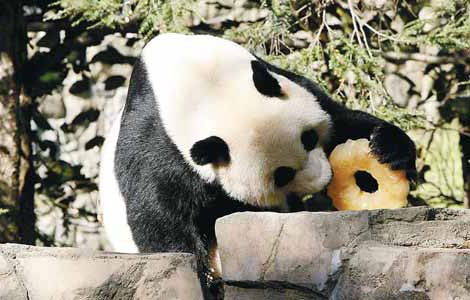
|

|

|

|

